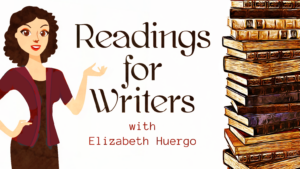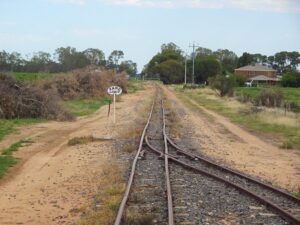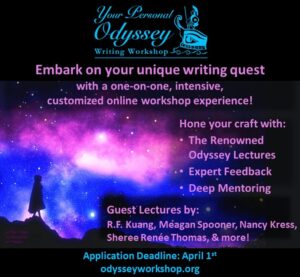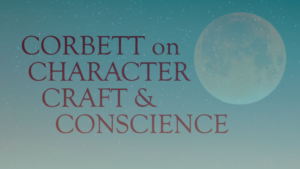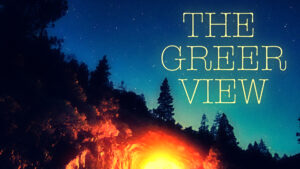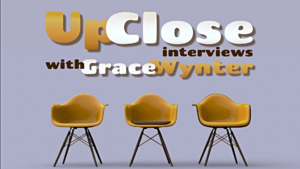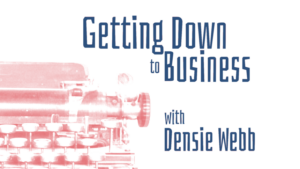REAL WORLD
I’m becoming an avid reader of Substack, and one of my favorite sites is Paul Krugman’s. Earlier this month, Krugman, a Nobel laureate in Economics, observed “…that everything Musk and Trump say about what they’re doing is false, including what they say about their motivations.” The pandemonium they are creating isn’t the point, he notes. The point is the consolidation of power. At this very moment, Krugman warns us, we are experiencing an “attempted autogolpe,” which he translates as a “self-coup,” and defines as act by which “a legitimately elected leader uses his position to seize total control, eliminating legal and constitutional restraints on his power.”
Golpe de estado and coup d’état both refer to the violent and unlawful overthrow of a government. The Spanish word golpe and the French word coup both refer to a “hit” or “strike.” Krugman is using and attributing a term from an opinion piece by Charles T. Call that appeared on the Brookings Institution website in 2021, “No, it’s not a coup — It’s a failed ‘self-coup’ that will undermine US leadership and democracy worldwide.” Two days after the January 6 attack on the US Capital, Call beseeches us to look to other countries (Peru, Guatemala, Bolivia) in order to understand that the attack was a “self-coup.” Despite the reference to Latin America, Call slips from Spanish (autogolpe) to a mishmash of English and French (self-coup). Perhaps that slip and the noticeable absence of irony are connected?
In Spanish “auto” has several meanings, including an act done by oneself. The Diccionario de la lengua española defines autogolpe as a violation of a country’s legitimate law, ordinance, or custom by someone in power for the purpose of consolidating and affirming power. I don’t know who first translated “auto” into “self”. “Self-coup,” however, does not lead to clarity but bathos. The violent, destructive strikes against law, ordinance, and custom shift rather quickly from the sublime to the ridiculous.
“Self-coup” has a pop-psychology vibe. I imagine someone fretting before a mirror, a big guy, strong guy, tears in his eyes, trying to power through a debilitating idea about himself that affects his moods and behaviors. A malevolent clown, he is not feeling good about himself, and he is going to usurp that part of his consciousness, beating out of himself what he deems unacceptable because, well, he is the State.
Another favorite Substack site is Book Post, founded and edited by Ann Kjellberg, a member of The New York Review of Books editorial staff from 1988 to 2017, the editor of Little Star (literary magazine), and the literary executor of poet Joseph Brodsky. Kjellberg began Book Post in 2018 with the hope of creating a community of readers and writers. Her purpose? She wanted to “restore” and “broaden” a nationwide “commitment to informed discourse and culturally rich expression,” a highly laudable goal.
Book Post is on a short break right now. Kjellberg is taking a couple of weeks to reflect on the balance she wants to achieve “between the works of ambition and insight that [she is] trying to introduce readers to and [her] own more worldly excursions into the business of publishing and news.” Her search interests me. […]
Read MoreEvery New Year I send out cards to former clients to find out how they’re doing and remind them that someone out there remembers they’re writers and wants to see them keep writing. I think they appreciate this – this year, one said the card brought tears to her eyes.
I’ve written before about how writing is hard. A lot of writers – including many of those who succeed in the end – have to throw away their first novel the way you have to toss the first pancake. Except that, for writers, it’s a pancake you may have poured your heart into for a year or more. And even with the novels that you keep, you’re facing some formidable hurdles in the way of breaking into print.
Some of the clients I keep in touch with have published successfully – novels or series that have collected good reviews and are selling well. But many have run aground on the hardships of the publishing trade. Sometimes, after years of struggle and rejection, they’ve either deliberately given up or just let other things in their lives sideline their writing. These are often skilled, promising writers, who have a good chance of finding a readership, but the struggle to break into print wears them down.
I don’t blame them. Until you actually break into print – or at least get close to it – the effort you put into your writing can feel like either an extravagant indulgence or a waste of time. A lot of worthwhile things – say, learning French or how to play the clarinet – need you to invest time and effort before they pay off. But with writing, your investment pays off much more slowly. You’ll start reading Maigret mysteries in French or playing along with light jazz long before you’ll hold your first published book in your hands. And you can be pretty sure that, if you stick with it, you’ll eventually master a language or an instrument. Having your book bought by a publisher is an uncertainty right up until it happens.
If you’re serious about being a writer, there are things that can help you get through the hard part. One is to focus on all the reasons for writing besides publishing. As I’ve written before writing puts you in touch with the world, with how people behave, with how their lives unfold. It lets you experience life at a deeper level. Granted, you could do a lot of that without the heartache just by practicing mindfulness, but there’s also something fun and satisfying in creating your own worlds.
You could also keep your hand in as a writer in other ways. Writing messages to family and friends or social media posts gives you a chance to exercise your love of language and hone your communication skills. Short stories can offer you more chances to break into print with less investment.
You can also look for a long-term support system, so you won’t have to go through the long, lonely stretch alone. This could be a supportive spouse or friend, a community of fellow writers, or <ahem> an editor who will pester you with a New Year’s card every year. […]
Read More
These are challenging times. There’s the political and societal crisis that is rolling out second by second before our collectively horrified eyes. I live in Australia, which is geographically distant from the USA, but I’m well aware that this ripples (or gushes?) out to affect the whole of the globe, my part of it included. Alongside that, war, death and destruction continue around the world. Racism, hatred and division play out on the streets, even here. And let’s not forget climate change, which is well and truly with us now, underlining the failure of many world leaders to take timely and decisive action. Humankind: we are our own worst enemies, and sadly it would appear that we are intent on destroying, not only ourselves, but this beautiful world and all its living things along with us.
That was not the most positive way to start a post about writing. But even as those horrifying developments unfold, I hear voices speaking out in hope. I see poems and essays and opinion pieces of remarkable wisdom, perception and courage. As a writer, you have the powerful tool of your voice. Note my choice of the word tool rather than weapon – I prefer not to cast this as a fight. But it is a battle of sorts, requiring bravery, stamina and skill. Words can indeed be powerful weapons for good or evil.
I’m writing this in company with fellow authors, sharing a table in a public library – we have become good at blocking out the exuberant voices of preschool children attending the regular story hour. In fact, their enjoyment of the bright and welcoming library and of storytelling gives us heart. As for our Write Club meetings, they are of immense value – it’s amazing how heartening it can be simply to work in silence alongside one’s peers. Today I intended to get on with the final chapters of my current work in progress, the sequel to my soon-to-be-released adult fantasy novel, The Amber Owl. But those world events continued to whirl around in my brain, a far greater distraction than the laughter of children. Earlier, I had been wondering how I could summon my usual words of hope for this post, with the world seemingly headed for hell in a handbasket at remarkable speed.
Then, last night, something clicked into place. It was the first rehearsal of the year for our small local choir, after a long break over the summer school holidays. I do love to sing; in the past, music was a major part of my professional life. And we’d been sent some exciting new pieces to learn, so I anticipated an enjoyable evening. What I didn’t expect was a strong reminder of how good singing is for us, both physically and mentally – a real workout for body and mind. I came home tired, but feeling positive, hopeful, thinking of beauty and peace and how important it is to speak up on behalf of what we believe in. What were we singing to inspire this? In particular, a setting of the beautiful Leonora Speyer poem, Measure Me, Sky, by composer Victor C Johnson. You can find it on YouTube, along with at least two other choral […]
Read MoreHave you ever wished that you could attend your own private writing workshop that would teach you exactly what you need to know, at the right pace for you, and respond to your questions, problems, and needs in extensive one-on-one sessions? That’s what Your Personal Odyssey is.
*Choose your pace with sessions starting
June 2, 2025 (6 weeks)
August 11, 2025 (12 weeks)
November 24, 2025 (18 weeks)
*Choose the topics you want to study, in the order you want to study them
*Learn from 163 Hours of the Advanced, In-Depth Odyssey Lectures,
including guest lectures by R. F. Kuang, Nancy Kress, P. Djélì Clark, Melissa Scott,
Brandon Sanderson, Mary Robinette Kowal, Meagan Spooner, Fonda Lee,
Sheree Renée Thomas, Scott H. Andrews, & more
*Receive Expert Feedback from Odyssey Director Jeanne Cavelos or internationally bestselling author E. C. Ambrose,
and several of our bestselling, award-winning guest critiquers:
Carrie Vaughn, Shiv Ramdas, Melissa Scott, Scott H. Andrews, and Arley Sorg
*Be Guided and Supported with Deep Mentoring of over 30 hours
with Odyssey Director Jeanne Cavelos or internationally bestselling author E. C. Ambrose
About Odyssey:
Since its inception in 1996, the Odyssey Writing Workshop has become one of the most highly respected workshops for writers of fantasy, science fiction, and horror in the world. Top authors, editors and agents have served as guests at Odyssey. Fifty-nine percent of graduates have gone on to be professionally published, and among graduates are award-winners, Amazon bestsellers, USA Today bestsellers, Publishers Weekly bestsellers, and New York Times bestsellers.
In 2022, Odyssey transformed into a breakthrough new program to become both more accessible and more effective. Students taking Your Personal Odyssey receive the inspiring, transformative learning experience Odyssey is known for, but that experience is customized to maximize learning and improvement for each student.
Director Jeanne Cavelos is a former senior editor at Bantam Doubleday Dell, bestselling author, and winner of the World Fantasy Award with 37 years of experience guiding writers and helping them make major improvements.
Financial Aid:
Seven scholarships are available for the ten to twelve students who will be admitted.
Your Personal Odyssey will help you follow the unique path that is most helpful for you, that teaches you the skills you need to improve the most.
Become the writer you’ve always known you could be!
Application Deadline: April 1
Odyssey also offers many free resources for writers.
Visit www.odysseyworkshop.org/about-the-workshop/
Questions? Email: jcavelos@odysseyworkshop.org
Read MoreAmong the many powerful things I’ve read recently, the one that struck deepest as a writer of fiction came from Robert Stone’s piece in Paths of Resistance: The Art and Craft of the Political Novel. The piece was titled “We Are Not Excused,” and the section in question was this:
The practice of fiction is an act against loneliness, an appeal to community, a bet on the possibility that the enormous gulf that separates one human being from another can be bridged. It has a responsibility to understand and to illustrate the varieties of the human condition in order that consciousness may be enlarged.
The writer who betrays his calling is the one who, for commercial or political reasons, vulgarizes his own perception and imagination and his rendering of them … The reassurance [such writing] offers is superficial: in the end it makes life appear circumscribed. It makes reality appear limited and bound by convention, and as a result it increases each person’s loneliness and isolation. When the content of fiction is limited to one definition of acceptability, people are abandoned to the beating of their own hearts, to imagine that things which wound them, drive them and inspire them may be a kind of aberration particular to themselves.
Stone’s remarks reminded me of something Simone de Beauvoir wrote in a review of Violette LeDuc’s memoir, La Bâtarde:
She who writes from the depths of her loneliness speaks to us of ourselves.
Finally, I was also reminded of the philosopher Richard Rorty’s concept of ironism, which can be described as “fashioning the best possible self through continual redescription,” an effort that requires us to reach beyond our own experience to learn from the experiences of others—in no small part from reading and writing. This is how we create solidarity:
Solidarity is brought about by gradual and contingent expansions of the scope of “we;” it is created through the hard work of training our sympathies … We train our sympathies … by exposing ourselves to forms of suffering we had previously overlooked … to sensitize [ourselves] to the suffering of others, and refine, deepen and expand our ability to identify with others, to think of others as like ourselves in morally relevant ways. The liberal ironist, in particular, sees “enlarging our acquaintance” as the only way to assuage the doubts she has about herself and her culture.
The task of achieving solidarity is … divided up between agents of love (or guardians of diversity) and agents of justice (or guardians of universality).
I doubt I’m alone in taking heart from thinking of “guardians of diversity” as “agents of love,” though it is also disturbingly clear that this is a view currently under strenuous attack.
My point here, however, given that it’s Valentine’s Day, is to broaden our understanding of love as it pertains to the stories we write, and why we write them.
I imagine it seems somewhat counterintuitive to think of fiction that conforms to convention as enhancing a sense of loneliness or isolation. The whole point of writing in a conventional manner is to be popular, to gain as wide an audience as possible. Stone’s point is that this is an act of bad faith, […]
Read More
Unfortunately, in word count as in life, there is no magic number. This applies both to the overall number of words in your manuscript (How many does it take? Enough to tell the story) and the daily word count goal you may want to set for yourself during the drafting phase. While some writers do just fine with “write as much as you can,” I’ve found over the years that I, personally, benefit from setting a more specific goal.
Want to see if a daily word count goal works for you? Here are three ways you might go about setting your personal number. One of these might resonate more than the others. Or it’s possible that your own best strategy may vary between these options – what works often depends on what type of story you’re writing, what stage you’re at in the process, what else is going on in your life, and much, much more.
High and ambitious. This is the type of goal many writers experience for the first time in a NaNoWriMo-type setting, trying to slam down a sloppy first draft in a specific amount of time at any cost. As you well know if you’ve done NaNo, it takes 1667 words each day to write 50,000 words in a month. For most writers with social lives and/or families and/or day jobs, this is a pretty brisk pace. But if you find you work really well under pressure, even self-induced pressure, a daily word count goal of 2000 or 3000 or even 5000 words might give you the kick in the pants you need to put big numbers on the board. Or there’s…
Modest and achievable. You’ve heard that slow and steady wins the race, and this is definitely another method with high potential for some writers. If you just want to chip away at the draft in bite-size chunks, a modest goal (often 500 words a day) enables you to feel that sense of achievement and forward motion without burning yourself out. Did you know that if you write 500 words a day, you can have an 80,000-word draft in under six months? That’s pretty fast, all things considered. Or you can try…
Schedule-driven. Whether you have a delivery date set by your agent or publisher or you just want to get through a draft for your own reasons, the third way to set a goal involves more math. Are you 30,000 words into a novel that you’ve already completely planned but you feel like you’re stalling out on the actual writing? You can get to 90,000 words in just one month, but you’re going to need to aim for 2000 words a day. Only 10,000 words into a planned 100,000-word novel you’re writing from an approved proposal and you’ve figured out that you need to get it to your agent in three months in order to make your publisher’s deadline in five? 30,000 words a month is 1000 words a day if you write every day, or if you’re only writing on weekdays, that’ll be about 1500 per. Look at the numbers, work backwards, do the math. Simple! (Much simpler to set the goal than to achieve […]
Read More
The other morning at my desk, fifty pages into writing a new novel, I found myself inventing a scene set in Central Park in the mid-1980s, a time when I had lived in New York with my boyfriend (now husband). I was reminded that in the early ’90s, after moving to Philadelphia, I had drafted a whole novel set in New York during the mid-’80s. I hadn’t thought about that book in years. But here I was again with a fictional setting I had first explored thirty-five years earlier. I clicked out of my new manuscript and went to search my files for the long-forgotten book.
Back then, even with computers widely available, I still penned the first draft of that novel longhand before typing it onto my Dell laptop. I then approached an agent friend and received a tepid response. I wasn’t too deterred. I felt confident there was something to this book and wanted to improve it. But I soon lost interest when our first child arrived. It was a difficult birth and I needed months to recover. When I returned to the manuscript, something had changed. I had changed. The story seemed impossibly far from me. Motherhood and regaining my strength took all my attention.
Years passed, the manuscript stayed in a drawer, and a second child arrived. I focused on being a mother and had time to write only an occasional poem or an essay about this all-consuming new stage of life. When our second child went off to nursery school, I brought out the old manuscript, looked it over, and felt nothing for it. Or to be more precise, I felt an aversion. A story is about a group of post-college friends and a main female character who becomes caught up in a love triangle with two of them, makes bad choices, and suffers dangerous consequences—this troubled landscape felt far from my new life, so rich with family and the all-consuming world of children.
I’ve returned to the novel several times since then. In the 2000s, I hired a typist to transfer if from floppy to hard disk. Some years later, I retyped it to conform to a new format. Each time, the writing felt foreign to me and the story remained dissonant with my life. In the meantime, I published four other novels, and I have a fifth one, Marriage and Other Monuments, forthcoming in February 2026.
But the other day when I reread that manuscript from the ’90s, I recognized it as my own and began to feel something for it. For one thing, the writing seemed daring. Each of my published novels proceeds in chronological order. But this unpublished one jumps in time as a half dozen voices narrate the story. Was I more courageous as a younger writer, or more foolish?
Now the once-troubling plot and characters posed only an interesting writing challenge. I had the right kind of emotional distance, on the narrative and on the writing itself. My husband and I have been married for thirty-eight years and the imagined world of these twenty-somethings in NYC of the mid-’80s is basically historical fiction!
As I read further, I saw that in 2017 I had written whole new sections and added a […]
Read MoreGreetings, WU Family. In my first post of the year, I’m introducing you to Ann Michelle Harris. Ann Michelle is an attorney by day, and at night, she writes romantic suspense and fantasy/speculative fiction with diverse characters and positive social justice themes. In today’s Q&A, she shares how her work in the areas of poverty, abuse, and child welfare guides her, how that work inspired her novel, North, and why she feels building community is one of the most important things a writer can do for their career.
GW: One of my favorite parts of this series is learning about an author’s origin story: the thing that propelled you from someone who only thought about writing to someone who actually wrote and has a book out. So, what’s your author origin story—in other words, why did you start writing and keep writing?
AMH: I have loved reading adventure stories since I was very young. I was an English major at Penn so I loved not just stories but also story analysis, themes, and structure. Several years ago, I went through a stressful time in my life and began immersing myself in escapist stories as a form of comfort. After months of consuming other people’s stories, I decided to become a contributor of short stories to a public writing forum. Positive responses convinced me that I might have a larger story worth telling and that I could be brave enough to take the risk to try to tell it. I specifically wanted to write an adventure story in honor of my children. Shortly after this, the pandemic came and gave me even more stress but also much more time to write since I no longer had to spend hours commuting to the office each day (and it gave me plot inspiration). That extra time allowed me to dig deeper into creating a full manuscript and begin the process of querying.
GW: Can you tell us about your path to getting North published?
AMH: After completing my manuscript, I began to query it to a few agents and independent publishing houses. I got rejections, but one rejection from a large indie press had detailed feedback about the plot (particularly the ending) and that helped me tweak some elements. I also worked with a developmental editor, a beta reader, and a critique group to fine-tune the scene structure and build more tension in the story arc. By then, I had heard from a few writers that it is sometimes more accessible to directly find a publisher than to find an agent. I had another historical gothic manuscript that was getting a lot of traction with agents, but I decided to pitch North to a small press at a writing conference, and they loved it after reading the full story. After I signed the publishing contract, I continued to fine-tune the manuscript and then worked with the publisher for editing, galleys, and cover design. I tweaked everything until it was ready for submission to the distributor, and then finally it went into pre-order. I used my pre-launch time to promote the book online, connect with readers, and lean heavily on the wisdom of my more experienced writer colleagues, who were incredibly supportive. Then the big day came […]
Read MoreWU community, I have a confession:
I’ve been in a “reading slump” for the last decade.
By “reading slump,” I mean that the novels I’ve finished belong to a highly exclusive club. I’ve accidentally pivoted toward nonfiction—Wendell Berry and Erich Fromm alongside Masha Gessen and bell hooks. Nothing wrong with that, of course, but sometimes I miss that sneak-a-book-under-the-covers feeling of a good, juicy novel.
So, what happened? Too much screen time killing my attention span (I mean, yes)? I’m getting old and now everything that’s not aligned with my personal preferences is what’s wrong with Kids These Days (…also likely)?
There are lots of possible causes, but only one has really stuck out to me: I don’t like it when books feel too much like a bad tour guide.
A bad tour guide? What?
When I talk to newish writers about how to “show, don’t tell,” I often use the metaphor of a guide taking a group on a nature walk. In this metaphor, the writer is the guide. A good guide will keep the pace of the group moving forward and on track without overexplaining or underexplaining. Every so often, they may stop or slow the pace of the walk to point out points of interest and share their specialized information (“Look at this cool bug!”).
The readers are the tour group, trusting the guide to ferry them responsibly from point A to point B.
When a nature walk breaks down, it might be for a few reasons: the guide used their time irresponsibly, meandering too much in the beginning and rushing the end; the guide lost control of the tour group due to carelessness or simply being boring, leading the group to try to guide themselves through the wilderness; or the tour guide marches the group through the underbrush like a drill instructor, pointing out everything but stopping nowhere.
Increasingly, I’ve been noticing a trend in contemporary novels toward the overly aggressive tour guide.
I pretty much feel like I’m being dragged along by the hair by a book while it yells, “LOOK AT THE PLOT. THIS IS THE PLOT!”
The moment of realization
I came to this conclusion while reading an adult fantasy novel published in 2022 by a Big 5 publisher. I actually finished the book, even though it gave me aggressive tour guide vibes, because the prose was so good I could mostly overlook how I felt like I was being breathlessly yanked along a single track, and that single track was the plot, and no we don’t have time to stop and breathe and briefly explore this fun little thing that maybe doesn’t push the plot forward much but adds some flavor to our journey.
What stuck out most was that that I viewed this book as extremely fast-paced to the detriment of the story. But when I went to record the book in my tracking app, I saw that 68% of people who had rated the book thought it was “medium” or “slow” paced.
I stared at this data for a while, wondering what planet I was living on.
It’s not content, it’s art
To me, this pattern—which, admittedly, I have noticed from a small sample size—feels like the content-ification (this is a word) of novels. Over the last decade or more, art of all […]
Read MorePetri Damstén
Are you burned out?
We live in an age of hyper-productivity. If you’re not doing a million things (presumably well) you are somehow failing.
The only acceptable excuse for lack of productivity is “I’m soooo stressed out!” which is worn as a badge of honor. (Either that, or you have a serious illness, preferably one that results in hospitalization.)
As writers, we’re supposed to be putting out any number of books, and either querying or self-publishing.
Add to that building our newsletter list, as well as creating content for every social media under the sun – there’s always a new one, or an old one that disappears and comes back, or whatever.
Or running ads. Building an ARC team.
And have you considered Patreon? Do you have merch? Have you done special editions or sprayed edges or new covers in a collector’s box on Kickstarter?
There’s always something else to learn, something else to do, and only so much time and energy.
Burnout doesn’t look like burnout.
As a writing coach, I’ve been teaching clients and students to be on the lookout for burnout for over a decade. There is no set approach to writing success, I counsel. Self-care above all.
Imagine my chagrin, then, when I realized I’d been burned out for a few years, all because I misunderstood my own energy and output patterns.
Read MorePlease welcome back long-time community member Keely Thrall as our guest today!
Keely writes contemporary and paranormal romance and is a proud member of the Stays Up Too Late Society of Book Addicts. (Their motto: “Just one more page, I swear!”) Her next short story, “The One That I Cherish” – in the Finding Forever Limited Edition Wedding Romance Collection – is available for preorder. Learn more about her books on her website, HERE.
Read on to learn about her efforts to grow a local writing community — especially if you live near Dulles, VA!
Welcome, Keely!
In March of 2024, I heard a call to step up to leadership in my local writers group.
Like any sane person, I stuck my fingers in my ears and said, “I’m not listening.” I had my priorities straight: write more stories, continue publishing, get better at marketing. Sell a few books.
But over the next two months, the whisper resurfaced, exhorting me, “It’s time.”
Time to put my strengths back into service in support of Washington Romance Writers (WRW), the writing community I’ve called “home” for 25 years.
That March, members of WRW were gathered at a rare in-person presentation and the then president asked, “What do you want from this community?” Among the replies:
“I want something on worldbuilding.”
“I’d like help with social media marketing.”
“How do I get better at conflict?”
“What should I include in my newsletter?”
All practical requests geared to helping writers at various stages. Yet even as folks voiced their individual asks, one wish was universally expressed:
“Nobody else understands me the way writers do.”
“I miss my people.”
“I want to network with other word nerds.”
“I crave more of the inspiration and support that comes when I’m with my writer pals.”
“I need more writer buddies.”
The common thread: each of us yearned for more time in the company of writers. For deeper connection.
Now, don’t get me wrong. It’s not that online communities don’t allow for building strong ties. I’m still logging into a morning Zoom writing session with a group I started back in May 2020. And, the leaders of Washington Romance Writers during the pandemic years kept our community up and running online when it could have poofed into nothingness.
But in March 2024, in that room with all of us rocking the particular high that comes from grooving with folks who are wired for story, that whisper reminded me: creating this kind of welcoming space is one of my superpowers.
Flash forward to July 1 when my term as president of Washington Romance Writers begins. We have 42 members (our pre-pandemic numbers hovered between 250-300). We have a July word count challenge starting. But the rest of the program year is a blank slate and I’m holding two priorities:
How could our team show folks that entrusting us with their time, attention and dollars would net them a worthwhile ROI? Could we develop a mix of online and in-person offerings to maximize member and potential member engagement opportunities?
Equally as important, how could we do this without burning ourselves out or eating through the chapter’s funds?
We make two immediate low-no cost/high impact changes:
We set up a […]
Read MoreIt’s a crazy time for sure, but writers are still writing and publishers are still publishing and AI is still working its way in. Meta is in hot water again for alleged use of pirated books to train AI models. AI may be finding its way into publishers’ advertising. On the bright side, the Authors’ Guild has initiated a human-authored certification program to alert readers to the real thing. Audiobooks are still going strong. Fighting book bans may be getting harder, as the Department of Education has dismissed some book-banning complaints. BookRiot digs deeper into a Fed press release regarding book censorship. In the it’s-about-time department, indie bookstores will soon be able to sell e-books, and bookshop.org is all in as well. Authors, publishers, and booksellers ponder the consequences if TikTok, and therefore BookTok, is banned. Libraries reveal the most borrowed books of 2024. One of the big 5 announces that book blurbs are a thing of the past. Trends in publishing for 2025. And there’s more. Read on!
AI
Authors claim Zuckerberg approved Meta’s use of ‘pirated’ books to train AI models
More on Meta’s alleged use of pirated books
Authors Guild rolls out human-authored certification program
Audiobooks
A 9.2% increase in digital audio spending
Book Bans
Department of Education dismisses book ban complaints
BookRiot give a how-to on critically reading a Fed press release regarding book censorship
Bookstores
Indie bookstores will soon be able to sell e-books to customers
Indie bookseller launch ambitious global bookstore crawl
With L.A. fires subsiding, book industry sustains action
Bookshop.org debuts its ebook platform
BookTok
Author predictions for Booktok 2025
What happens to Booktok if TikTok is banned?
A TikTok ban would mean losing the one platform making Americans want to read
Copyright
Romantacy author facing a juicy copyright lawsuit
Libraries
Libraries reveal the most borrowed books of 2024
Future of libraries unclear amid on/off federal funding freeze
Politics and Publishing
What book publishing can expect under the second Trump administration
Publishing Industry
8 newsletters that demystify the publishing industry
Top 10 publishing trends for 2025
Simon & Schuster won’t require blurbs going forward
Layoffs hit Union Square & Co following Hachette purchase of book group
According to the Association of American Publishers, the industry was up 10.3 in November
Publishing Scams
Three charged in alleged book publishing scam targeting older authors
So, what do you think about Simon & Schuster’s decision not to require blurbs? What that be a relief or do you think blurbs are important for promoting and selling books?
Read MoreAs the years go by, the average age of debut authors seems to get younger and younger. There’s plenty of reasons why this is great: the YA genre embracing authors who are the ages of their characters, the removal of societal assumptions that younger people can’t contribute to art in a meaningful way, the increase in opportunities for younger writers to access helpful resources, etc.
Conversation about this reality would stop there if two things didn’t start to emerge from this trend: 1) the publishing industry skewing notably toward younger writers to the point of sometimes completely shutting out older writers (meaning older than—gasp—30, 35 tops) for consideration for agent representation, publication, awards, or reviews, and 2) the assumption that the younger a writer publishes, the more “naturally gifted” of a writer they must be, and therefore a better writer than those who debut older.
I’ve taught plenty of creative writing courses, and nearly all my older students have expressed an identical concern: That because they’re older, they’ll be largely ignored by the industry both pre- and post-offer. Worries about age have even hit some of my younger students. On their end, they’ve been fed the assumption that since younger equals better, they must land a book deal right out of the gate. If they don’t, they’re failures, will soon be “too old” to publish in a way deemed meaningful, and they should just give up if their path to publication isn’t a breeze from beginning to end.
That’s just not how any of this works. As someone who’s publishing his debut, The Lilac People, at an apparently older age—To paraphrase a petulant Frasier Crane: I’m not yet “of a certain age,” I’m smack dab in the middle of “not a kid anymore.”—and spent over a decade collecting rejections from various projects, I want to set the record straight about the benefits of publishing older.
Read More
As I write this, I await my editor’s feedback on my new historical novel. If you want to know the truth, I’m nervous. Because, while the draft does hew closely to the outline and intentions we agreed on when I sold this book on proposal, and while I did think the draft was ready for her to assess, the waiting allows my imagination to cook up all sorts of ugly scenarios and serve them to me fresh each day. Nature abhors a vacuum, or something like that.
My nervous imagination calls me a talentless hack. It suggests I quit writing and put my creative energy into making pottery—which, it reminds me, I’ll never have to show to the public, and wouldn’t that be a nice change? There are a lot of great things about being a published novelist, but there’s also this: having one’s work publicly and perpetually reviewed and reviewable by industry, media, and ordinary readers feels similar to how I imagine it would feel to live naked in a brightly lit glass house while observers broadcast their critical assessments of my not-sculpted, middle-aged body to the world. And, as with reality, they also make critical assumptions about my intelligence, intentions, and character.
I know I should be well past these insecurities. The Voice of Good Sense says, “Dude, what’s the problem?” (It likes to call me dude; it’s retro that way.) It reminds me, “This will be your eighth published book. You’re a professional. You got this.” But here’s why confidence is easier declared than embraced: every time I write a new novel, I honestly don’t know how I’m going to do it.
Fool that some might say I am, I don’t (maybe even can’t) write the same type of book over and over again. To date, the tally is three women’s fiction, two historical fiction, two contemporary general fiction. Even within genres, my approaches vary greatly. Had I been gifted with the trait that lets some authors write, say, only mysteries, or only thrillers, or only romances, I would at least have my genre conventions as framework for every book. I might, over time, achieve something like a mastery of my form. But, no; every time, I have to figure out anew just what it is I’m trying to build, and then figure out how to go about building it. Add to this stress the fact that I’m in a new editorial relationship at a new-to-me publishing home, and the Voice of Good Sense just can’t quite drown out the Voice of Anxiety.
And yet, I’m excited about this new book (especially now that it’s finally written)! I’m excited to have tried a new form and (maybe) succeeded with it. And so, while I wait to know whether I’m more deluded in my excitement or in my anxiety, I’m going to take this opportunity to talk about the scaffolding I stood on to construct this latest book.
From the time I conceived the story, which is inspired by my own family’s history, I knew its scope was large—even “epic,” given its time setting (WW1’s chaotic aftermath in eastern Europe and the Russian Civil War) and its multiple geographical settings. I knew the story was of an arduous journey—an […]
Read More
